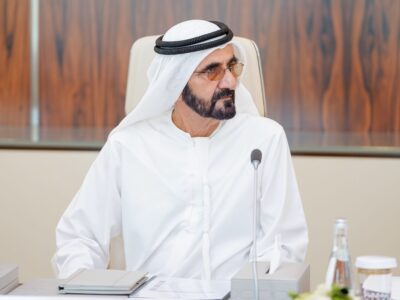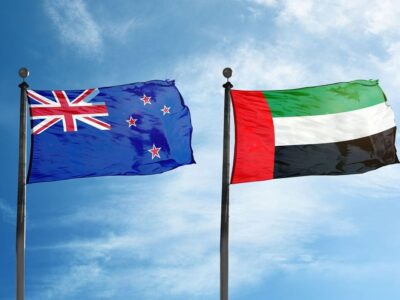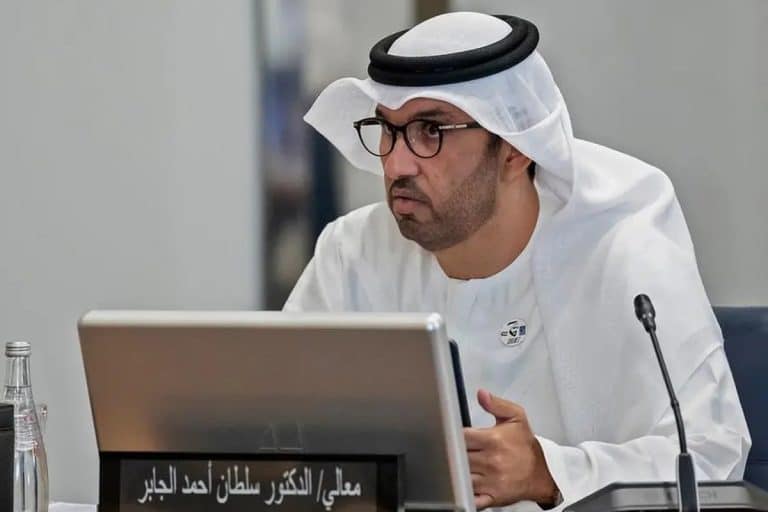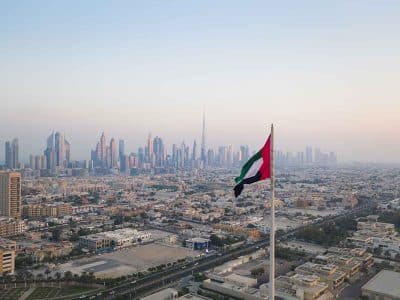UAE COP28 President-Designate Dr. Sultan Al Jaber on Friday urged G20 nations to take the leadership role on climate action, and said that their decisions will have an enormous influence on the outcomes for all countries.
Speaking at the G20 Climate Sustainability Ministerial meeting in the Southern Indian city of Chennai, Dr. Al Jaber expressed his concern that his call at last week’s meeting in Goa to triple renewable energy capacity by 2030 has “yet to find expression in G20 outcomes”, despite its importance to the goal of keeping 1.5°C within reach.
“As a group, the G20 represents 85 percent of the world’s GDP and 80 percent of the world’s emissions. What you decide will have a huge influence on outcomes for everyone, everywhere,” Dr. Al Jaber told ministers.
“There is still time for the G20 to show leadership, and I am calling on all of you to work with your leaders to drive global climate action in this critical decade.”
Dr. Al Jaber also called on all parties to show solidarity and demonstrate commitment to the UN Secretary General’s Climate Solidarity Pact and Acceleration Agenda.
“I made the case for all parties to get behind a rapid scale up of renewable energy, while we comprehensively decarbonize the current energy system and build towards a system free of all unabated fossil fuels,”, he said.
The President-Designate also highlighted the importance of making progress on adaptation, with parties having signed up to the Global Goal on Adaptation under the Paris Agreement.
“We all signed up for this. We are all responsible for its success,” he said, adding “yet today, the science and our senses are telling us that the world is more vulnerable, less resilient and lacks the critical capacity to deal with mounting climate impacts.”
“Right now, many of the indicators are going in the wrong direction. Temperature records continue to be broken, with this month officially recorded as the hottest in history. We are losing biodiversity. Agricultural land is being degraded. And food insecurity is increasing,” Al Jaber said.
COP28 links climate impacts to global health
Transformation of food systems is also a top priority for the COP28 Presidency – “and we need it to be your priority as well,” he told ministers.
“Your national adaptation plans and strategies should promote sustainable land use, leverage technologies to increase crop resilience, enhance nutrition and reduce the climate impacts of farming.”
COP28 will be the first edition of the conference to explicitly link climate impacts to global health, with a day dedicated to health issues, and the first-ever climate health ministerial in partnership with the World Health Organisation.
The President-Designate invited all G20 nations to partner on this to ensure the resilience of global health systems.
The President-Designate also reiterated the need to “move the needle on adaptation finance” which is only around 10 percent of that allocated for mitigation.
“Doubling adaptation finance by 2025 is a critical first step but we need to look at directing a solid proportion of all climate finance toward adaptation responses,” he said.
“Every day we are seeing the human impacts of extreme climate events devastating the lives of ordinary people around the world. Let us reflect on that as human beings and remember once again why solidarity is so important. I urge you to bring that spirit of solidarity to COP28,” he said.
As part of his visit, Dr. Al Jaber also held strategic bilateral meetings with key environmental and climate ministers to build consensus on the road to COP28, including ministers from India, Japan and Brazil, besides John Kerry, US Special Presidential Envoy for Climate.








